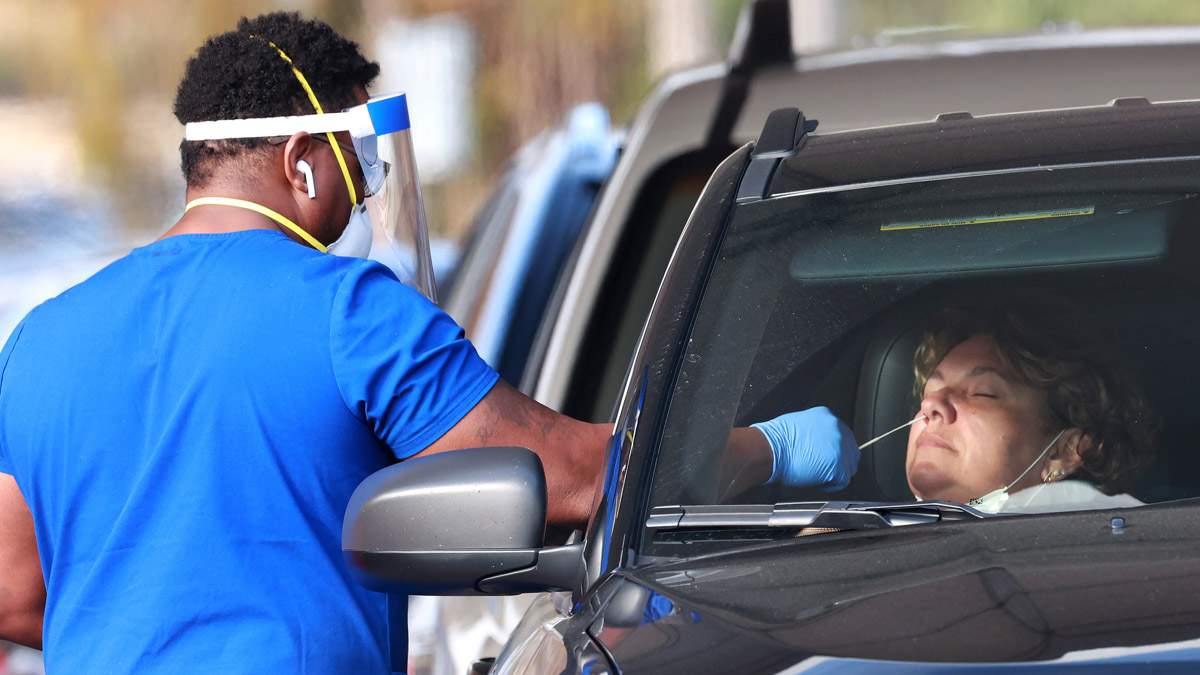Fort Worth City Council members will get an update Tuesday on a $9.3 million project to protect some of the city's most vulnerable during the coronavirus pandemic.
That money from the federal Coronavirus Aid, Relief, and Economic Security (CARES) Act paid for a former extended-stay hotel that's now been converted into permanent supportive housing for the homeless.
In less than three months, the city and its partners had the place ready for move-in. Casa de Esperanza now has 115 residents with the final four in the pipeline.
"These are folks who are really our most vulnerable in the community. It's a lot of older folks and people with multiple health conditions that have been homeless a long time. And, now they are out of the shelters and out of the camps which means, we improved their life expectancy because they are folks that if they get COVID, it's very serious," said Tara Perez, manager of the city's Directions Home. Directions Home is a two-person unit in the city manager's office overseeing a $3 million budget in general funds to invest in reducing homelessness.
Back in May, new federal money became available to address homelessness at the same time as shelters were instituting social distance protocals to reduce exposure to coronavirus, Perez said. Shelters could not accept as many people, and it ultimately put more homeless on the streets.
"The advice from CDC is to be really careful with those over 65 and with medical conditions because having them in a congregate setting like a shelter is pretty dangerous. So we were wondering what to do," Perez said.
A lot of that new money, she explained, was for short-term rent. But many of the people who needed the help were over 65 with health conditions or disability and chronically homeless, meaning they'd been homeless for more than a year.
"Helping them out for two years wasn't going to meet their needs. So, we thought, 'how can we use coronavirus relief funding for capital improvement?'" Perez said.
An informal report to the council shows how quickly the Casa de Esperanza project moved from an idea to a reality.
On June 23, 2020, staff outlined to the city council a proposal to develop permanent supportive housing (PSH) for approximately 200 COVID-vulnerable individuals and couples.
A week later, the city issued a Request for Proposals looking for someone who could quickly acquire and convert existing motels, hotels, extended stays, apartment complexes or similar permanent structures to serve as approximately 200 units of PSH split across two or more locations; and provide ongoing supportive services for such households for a period of at least 20 years.
By Aug. 4, the city received five proposals, and city staff recommended that Fort Worth Housing Solutions and the Presbyterian Night Shelter of Tarrant County Inc. be awarded notices to proceed. A week later, the council approved spending up to $9.3 million to develop approximately 100 units of COVID-vulnerable permanent supportive housing.
Three months after first hearing the proposal, the city council passed a Resolution of Support for the project. Fort Worth Housing Solutions won the bid and acquired HomeTown Studios at 3804 Tanacross Drive and renovated it.
"That federal investment of $9.3 million serves 119 folks now, and over the 20-year life of the project, it will serve at least 500," Perez said. "Obviously, there was some doubts about how do you do this in three months, acquire a property and renovate it, and then lease it all up."
Perez said Fort Worth Housing Solutions and partner Ojala Holdings "worked around the clock, even on holidays and weekends to make sure the renovations got done."
Partner agencies lead by Tarrant County Homeless Coalition worked on the paperwork to qualify the residents. All tenants had to meet three criteria:
1) Have a disability.
2) Have been homeless longer than one year
3) Be COVID-vulnerable (either over 65 or having a CDC specified health condition).
"It was those partners hitting the streets and going into the shelters and finding the right folks for this project that made it happen so quickly," Perez said.
The first residents moved in on Nov. 23, with all 119 units days away from being fully occupied.
"This was a really incredible opportunity. This is the largest PSH project we have in Fort Worth, and I think, that's why it came together so quickly is because all of us and our partners realized this is a life and death thing to getting our most vulnerable out of our congregate settings like shelters," Perez said.
"I want to tell them (city council members) thank you," she said. "They're the ones that allocated the $9.3 million, and just to say thank you for trusting us with this. We know it was ambitious and kind of daunting but we came through, and now we have 119 people off the street because of this decision."
The informal report shows three case managers from Presbyterian Night Shelter and one mental health specialist from MHMR are onsite. JPS is hiring for the onsite medical navigation position.
The average age is 55, with the oldest tenant being 77. At least nine tenants were homeless over nine years before being housed at Casa de Esperanza. Average income/median income is $6,037.
This project has involved cooperation among multiple city departments, including Neighborhood Services, Development Services, Finance, Law, Property Management, and Diversity and Inclusion.
External partners who assisted clients in qualifying and applying include Tarrant County Homeless Coalition, DRC Solutions, Union Gospel Mission, Presbyterian Night Shelter, MHMR of Tarrant County and JPS Health Network.


